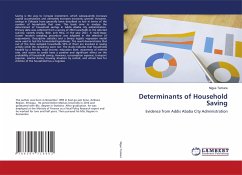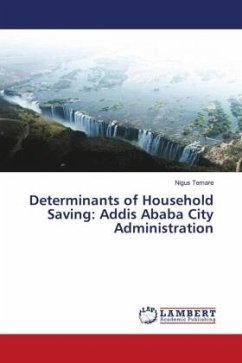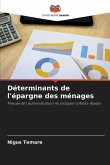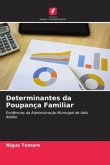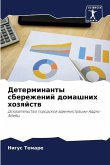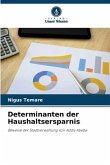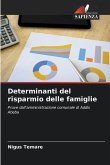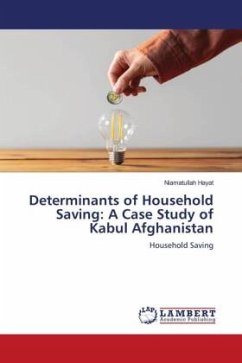Saving is the way to increase investment, which subsequently increases capital accumulation and ultimately increases economic growth. However, savings in Ethiopia have generally been described as low in terms of the number of households that save. This book aims to analyze the determinant of household savings in Addis Ababa city administration. Primary data was collected from a survey of 256 households in the selected sub-city, namely Arada, Bole, and Yeka, in the year 2021. A multi-stage cluster random sampling procedure was adopted in the selection of respondents. Descriptive statistics and a binary logistic regression model were used to test the formulated hypotheses. The result demonstrates that out of the total sampled households 52% of them are involved in saving activity while the remaining were not. The study indicates that households headed by a female, total income, education level, awareness of interest rate, and access to credit have a positive and significant effect on the probability of household saving. However, consumption expense, transport expense, marital status, housing situation by rented, and school fees for children of the household has a negative
Bitte wählen Sie Ihr Anliegen aus.
Rechnungen
Retourenschein anfordern
Bestellstatus
Storno

